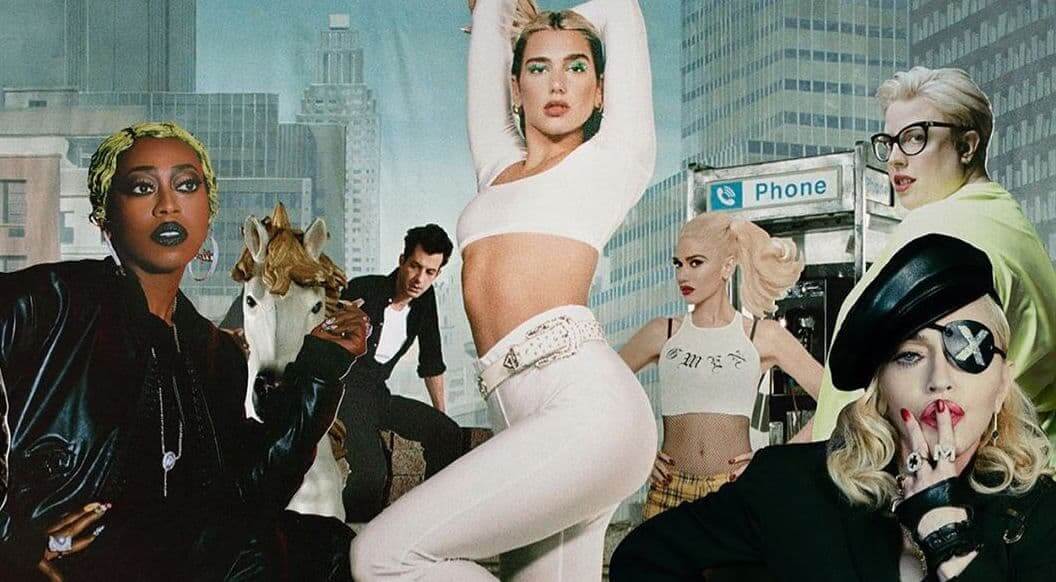
Utada Hikaru hasn’t released a studio album in over four years (that’s well over 300 years by Japanese pop standards), but her presence in the music industry is still felt. Strongly.
Back at the end of 2010, the prolific singer-songwriter announced that she would be taking some time off to live life for a bit. (I suppose that’s fair.)
To lessen the agony of waiting, or perhaps to slowly reintroduce her back into the mainstream (hopefully the latter), Utada’s team have issued two official releases this year: A gorgeous 15th anniversary re-release of her debut album First Love and, as of this week, a tribute album called Utada Hikaru no Uta, a collection of covers spanning nearly the entirety of Utada’s recording career, performed by some of the industry’s most talented and unique vocalists.
The tribute project itself is an ambitious one, not only combining dozens of acts onto one record but bringing together artists to create a “Creators Gallery” as well — a collection of Utada-inspired art from photographers, illustrators, choreographers, designers and directors.
For the most part, the featured musicians on Utada Hikaru no Uta stay faithful to the original records while adding their own unique flare to the production, as with KIRINJI‘s refreshingly chilled out rendition of Hikki’s encouragement anthem “Keep Tryin’,” AI‘s soulfully somber take on “Final Distance,” Kazuya Yoshii‘s rock-tinged “Be My Last” and Love Psychedelico‘s folk-tinged take on “Hikari,” which adds twangy guitars and a bit of a country stomp to the Kingdom Hearts classic. Yeehaw!
The love for Hikki’s artistry thoroughly comes through in each song, too: Miliyah Kato‘s take on “For You,” for example, kicks off with an unexpectedly #personal intro, as she hums to Utada’s original for a moment. “June 30…my diary,” she mumbles before launching into a smooth rendition of the R&B original. Things get especially great around the 4:30 mark, as the singer switches into a “Give Me A Reason” mini-dance breakdown.
Shiina Ringo‘s jazzy, oddball cover of “Letters” is another treat, adding a bit of lively pizazz to the production, sounding like something of a cross between Kate Bush and Cyndi Lauper — a sound I imagine Hikki would rank at the top of her personal favorite list from the LP.
Mercifully, the album’s most anticipated moment also happens to be one of its best: It’s Ayu, bitch.
Seasoned diva and Empress Of J-Pop Ayumi Hamasaki‘s comes through with her delicious choice of throwback jam “Movin’ On Without You,” made all the more incredible with her decision to enlist RedOne for production. Happily, the result sounds exactly like something you might expect to hear on one of Ayu’s Ayu-mi-x Euro-dance compilations. It’s surging, non-stop nostalgic throwback — for both artists involved, really.
A diva paying respect to a fellow diva is always thrilling. Can they be friends now? I want to see these two getting faded, turning up and getting 2 On in the club together one day.
Aside from Ayu, the album’s other most anticipated collaboration comes at the hands of the legendary production duo Jimmy Jam and Terry Lewis (of Janet Jackson‘s Control, among about a million other classics.) They’ve chosen to take on “Sanctuary” (my personal favorite — no pressure!), employing prolific crooner Peabo Bryson (the voice on Aladdin‘s “A Whole New World,” for example) on vocals.
Their rendition of “Sanctuary” is unexpected, though not necessarily in a bad way: Rather than the drum-filled main version, the group set their sights on the “After The Battle” ballad arrangement. The production glides gently across the song’s familiar piano melody, complete with sparse, atmospheric sound. Thanks to Peabo’s delivery style, the song feels rather dramatic — if not slightly cheesy. A different vocalist might have made the production feel a bit more haunting. (Then again, it’s hard to imagine anyone successfully pulling off this song other than Utada.)
Still, it makes for an intriguing listen, especially considering that this is the album’s sole contribution from the West.
Along the way, there are just a few tiny bumps along the road, including the very first step: Yosui Inoue‘s wacky, horn-filled take on “Sakura Drops” turns the track into a salsa of sorts — which is fine, but the song’s lyrics are far too poetic to be turned into a fiesta, right? Then again, it’s kind of fun. (That’s the beauty of a reinterpretation!) However, Yasuyuki Okamura‘s wild yelping in his “Automatic” cover nearly borders on parody.
Still, the album’s highest points greatly outweigh the missteps: Major standouts include the tofubeats take on “Time Will Tell” with Bonnie Pink, which gives the song a creeping, skeletal electronic makeover that sounds like something off of a FKA Twigs record, as well as Ohashi Trio‘s oh-so-tenderly crooned “Stay Gold” cover, which is an incredibly beautiful exercise in restraint. The track is nearly acapella, apart from a gentle piano melody and some choice background harmonizing — underscoring the true beauty of the original. Similarly, Hanagerumi‘s rendition of “Flavor Of Life” gives the song entirely new dimension by stripping down the song’s melodies to their purest form.
Utada Hikaru no Uta is an eclectic mixture of earnest (and, occasionally, overly ambitious) interpretations, but the music itself almost comes second to the overall statement the record makes as a whole: Utada Hikaru is loved, and the impact of her music is profound. There’s really no other way to explain such an involved tribute by such a vast array of musicians — her music is something truly special, indeed.
Utada’s comeback has never been more needed. Until that moment comes, this album is here to remind us why.





‘Utada Hikaru no Uta’ was released on December 9. (iTunes Japan)





